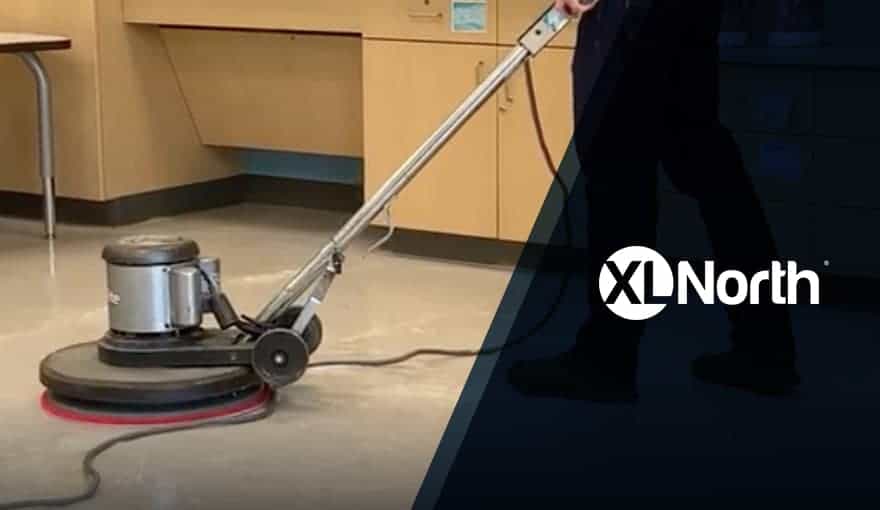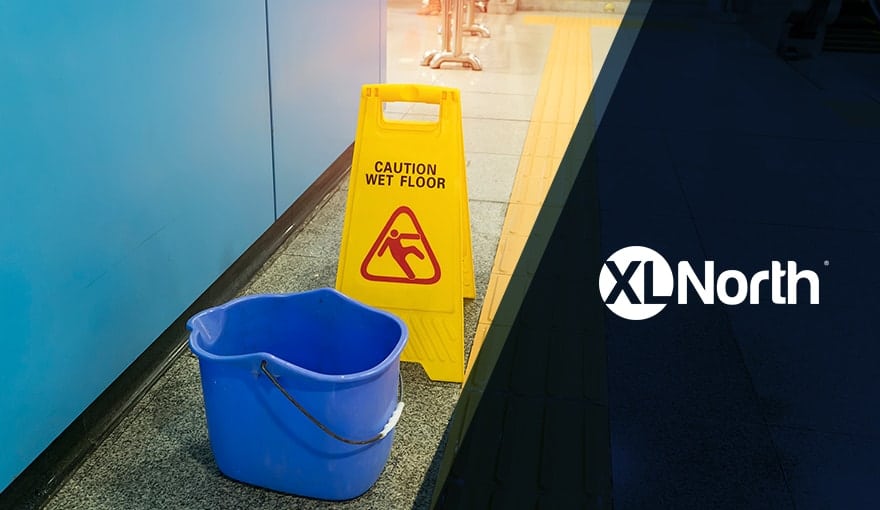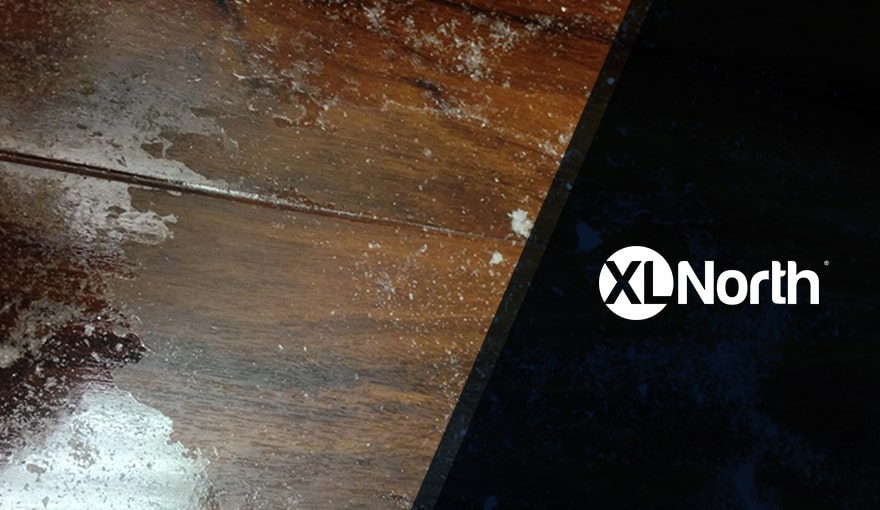In this article, we’ll consider the many advantages and benefits of using a professional floor maintenance company to perform initial maintenance in a newly installed or remodeled flooring project.
Protecting the Flooring Contract with Initial Maintenance
The flooring contractor’s sales person spends a great deal of time working with the customer selecting the perfect flooring for their client. They examine all of the qualities that the customer requires; category, classification, color, texture, compatibility and budget to ensure that what they purchase is exactly what they want. Once the flooring is selected and purchased it is installed using the manufacturers recommended installation methods and a qualified installer to guarantee proper placement of the flooring material. In some situations the installer is required to have an additional manufacturer’s certification for installing a particular classification of flooring. At this point the flooring contractor has satisfied the customer’s purchase expectations as well as fulfilling the manufacturer’s installation recommendations.
Flooring is usually installed during the construction phase of the building or as a remodel to an existing space. Installation is typically in conjunction with a general contractor; however there are many occasions when the end user is working solely with the flooring contractor. The construction or remodel sites are generally cluttered and dirty with the byproducts of construction and installation as is flooring installation alone. Post installation maintenance is required and should be the very last service provided before turning over the building. The customer should be presented with a floor that is visibly clean with an acceptable appearance, protected with a polish when applicable, and safe to walk on.
It doesn’t matter whether it is carpet, stone, concrete, ceramic, wood, resilient or specialty; all flooring, regardless of category or classification, will require initial maintenance to be performed after installation.
Every manufacturer or fabricator of flooring materials has a recommended maintenance publication that instructs the end user on how to maintain the floors after installation, but it is the responsibility of the general contractor and/or the flooring contractor to ensure it gets done and by extension, correctly.
The Importance of Using Floor Care Professionals for Initial Maintenance
Many times the initial maintenance is sub contracted out by the general contractor or the flooring contractor to building service providers. This may result in initial maintenance be performed by unqualified individuals that may offer inadequate services or omit them altogether. Invariably the floors are often presented to the end user in unsatisfactory condition, which can take away from the customer’s total satisfaction of the relationship. Even if the building service contractor comes back and re does the job, first impressions have lingering effects that can impact future business relationships.
In general, professional floor maintenance technicians are not used to perform these all important services. It could be due to financial constraints or lower bids which are common reasons, but in many situations the installer or the end users feel that they can do it themselves. They generally don’t have the proper training, appropriate equipment, tools and materials and will purchase the most inexpensive chemicals available. The end results can range from acceptable to just short of catastrophic. Although the manufacturers provide maintenance recommendations, they do not require qualified or certified floor maintenance technicians to perform initial maintenance as is required of installation technicians.
Manufacturers make flooring; flooring contractors sell and install them, floor maintenance is the responsibility of the end user. Traditionally, initial maintenance performed after installation was considered a temporary consideration, much like an auto dealership washes the new car and fills the tank with gas. Basic floor maintenance was performed and a minimum amount of protective polish was applied to the floor because the end user would most likely have their staff remove what was applied and begin their own floor maintenance program. Although this was redundant, it was and still is common practice.
Continuing Education and Training are Necessary for Initial Maintenance
Times have changed and everyone is faced with the same issues. Advances in technology have created new classifications of flooring. Environmentally friendly chemicals, equipment, tools, materials and methods are being required in a majority of buildings. Economic instability has trickled down to affect financial resources allocated. In short, there is more flooring classifications, maintenance procedures are changing and financial resources are limited. Traditional temporary initial floor maintenance may no longer be acceptable due to these changes. Initial maintenance is evolving into a more permanent solution for the customer, setting the initial maintenance foundation for long-term strategic floor maintenance, which requires a professional.
Floor maintenance as a profession has changed considerably over the years, changes in flooring categories and classifications have forced it to. Historically, floor maintenance was a part of the janitorial industry and in many respects still is, but exclusive floor maintenance companies are on the rise and they take floor maintenance very seriously. Also, many flooring contractors have added maintenance to their distribution and installation services to complete their offering, capitalize on the financial opportunities as well as protect the newly installed floor to ensure the program is initiated correctly and that the customers expectation of end results are met. These professional floor maintenance companies spend time and financial resources to guarantee their technicians are certified and qualified to do the job.
Benefits of Using a Professional Floor Maintenance Company to Perform Initial Maintenance
- Identifying the flooring category and classification and by extension the appropriate floor maintenance program
- Being trained on current and new technology and methodology, including the environmentally friendly programs
- Working with their customers to explain how proper floor maintenance, especially initial maintenance, can help extend the time between expensive restorative maintenance
- Pride in performance of their craft and a constant strive to be professionals
- Most importantly, they deliver a professional result, which in the end satisfies the customer
The real question is why would you want anyone other than a professional floor maintenance technician performing these critical services?


